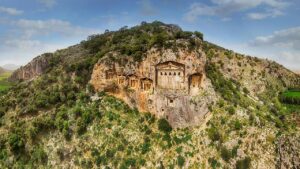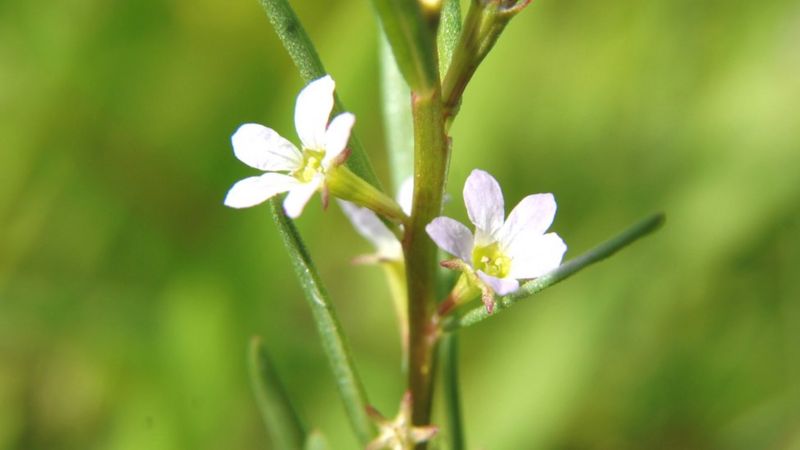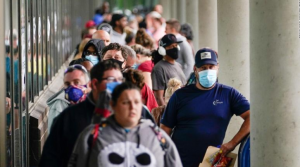


Surprise discovery of rare plant at Norfolk 'ghost pond'
![]() Advanced
Advanced
2020/12/01 18:14
1. germinate (v)
to (cause a seed to) startgrowing
2. stumble (v)
to step awkwardly while walking or running and fall or begin to fall
3. snapped (v)
to take a lot of photographs quickly
4. botanist (n)
a scientist who studies plant
5. cultivate (v)
to prepare land and grow crops on it, or to grow a particular crop
6. overlook (v)
to fail to notice or consider something or someone
7. neglected (adj)
not receiving enough care or attention
8. submerge (v)
to go below or make something go below the surface of the sea or a river or lake
Surprise discovery of rare plant at Norfolk 'ghost pond'

A rare plant has reappeared after more than a century in hiding.
The pinkish-flowered plant, known as grass-poly, was found growing on the banks of an old farmland pond in Norfolk. The mystery species “came back from the dead” after seeds submerged in the mud were disturbed during work to restore the pond.
Carl Sayer, a professor at University College London (UCL), stumbled on the plant when he went to survey the pond at Heydon shortly after the first national lockdown ended.
Having never seen anything like it before, he quickly snapped a picture, which he sent to local botanist Dr Jo Parmenter. She identified it as grass-poly, one of the rarest plants in the UK.
“It’s really quite beautiful,” says Prof Sayer. “We only found a handful of these plants in the pond but we’re hoping to cultivate this population and keep it going and expand it now we know it’s there.”
At Heydon, the seeds of the plant remained buried in the mud, like a “time capsule”. When willows were pulled out to restore the pond, this disturbed the soil and let in light, allowing the seeds to germinate.
Centuries ago, there were thousands of ponds in Norfolk, but many have been neglected, becoming what are known as “ghost ponds”. There may be other populations of the plant in Norfolk that have so far been overlooked, says UCL researcher Helen Greaves.
“Could further pond restorations bring back more plants?” she asks. “Either way, finding this elegant little plant may provide an important and unexpected new focus for our Norfolk Ponds Project.”
Resource: https://www.bbc.com/news/science-environment-55104153

- What would happen if plants became extinct?
- How can we protect endangered plants?
- How would we survive in a world without plants?
“A passionate look, touch or a hug on a plant is enough to open your inner eyes than going for a serious yoga and other therapies”










